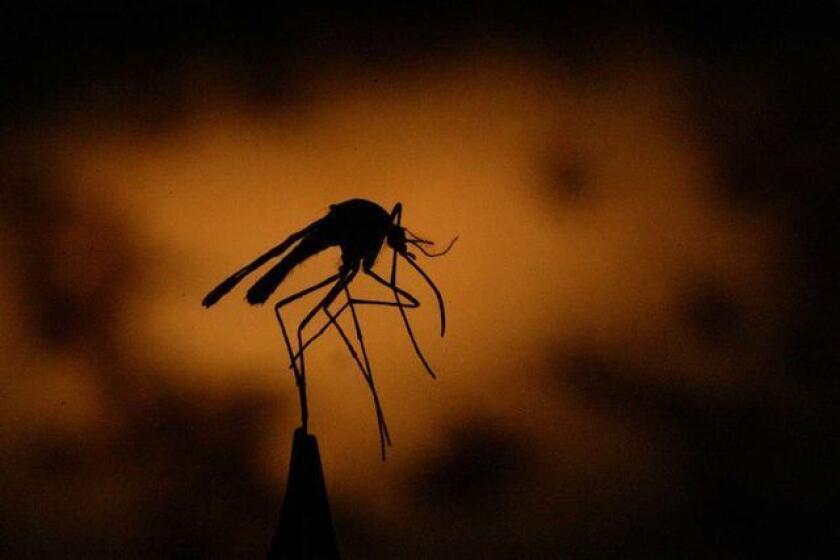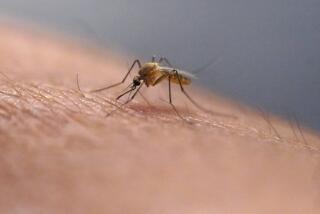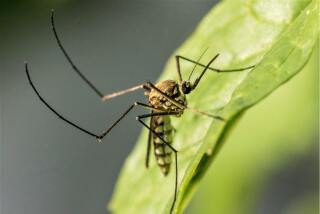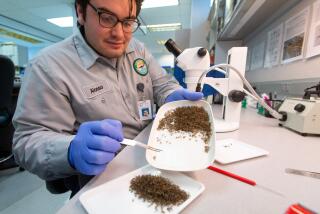Child is first person in Orange County to contract West Nile virus this year
An Orange County child has tested positive for West Nile virus, becoming the county’s first confirmed human infection of the year, health officials said this week.
The child — whose name, age and city of residence were not disclosed — was hospitalized but is recovering, the Orange County Health Care Agency said Monday.
Officials said the child was diagnosed last week, but didn’t say how or when the youngster was believed to have been infected with the mosquito-borne disease.
“West Nile virus is endemic in Orange County, recurring every year during the summer months and continuing into the fall,” Dr. Clayton Chau, director of the Health Care Agency and acting county health officer, said in a statement. “The best way to avoid West Nile virus infection is to take precautionary measures to avoid mosquito bites.”
Mosquito samples collected in Anaheim, Cypress and Garden Grove tested positive for the virus last month, as did a dead bird recovered in Irvine.
The positive mosquitoes were collected in Cypress, Anaheim and Garden Grove. A dead bird, collected in Irvine, also tested positive for West Nile Virus.
Ten other human cases of West Nile virus have been confirmed statewide this year, according to the latest figures from the California Department of Public Health. Eight of those were in Stanislaus County, with the others in Los Angeles and Madera counties.
The virus, which was first identified in California in 2003, is commonly transmitted to mosquitoes when they feed on infected birds. The insects can then spread the disease to humans.
While the majority of people infected with West Nile virus don’t feel sick, about 1 in 5 will develop symptoms such as fever, nausea, fatigue and head or body aches. In more serious cases, patients can experience neck stiffness, severe headaches, confusion and muscle weakness or paralysis.
Officials recommend residents take precautions to avoid mosquito bites and eliminate areas where the bugs can breed. Tips include emptying standing water sources, using appropriate insect repellents, wearing long-sleeved shirts and pants while outside and making sure door and window screens are secured.
More to Read
Sign up for Essential California
The most important California stories and recommendations in your inbox every morning.
You may occasionally receive promotional content from the Los Angeles Times.












